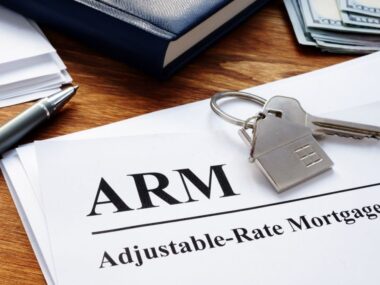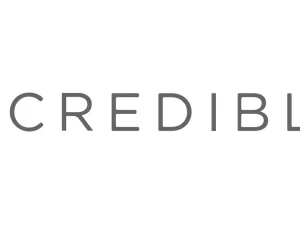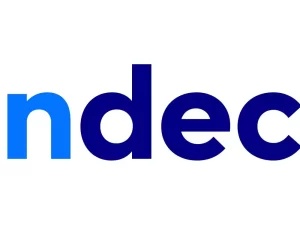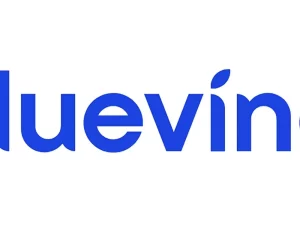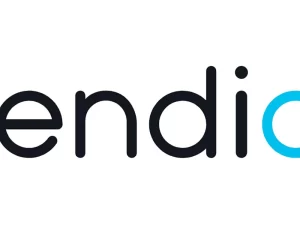The various types of mortgages to make informed decisions when choosing the right one for your specific needs. In this comprehensive guide, we will explore different types of mortgages, their characteristics, advantages, considerations, and some additional specialized options that borrowers can consider.
1. Fixed-Rate Mortgages (FRMs):
Fixed-rate mortgages are among the most common and traditional forms of home loans. With an FRM, the interest rate remains constant throughout the loan term, typically ranging from 15 to 30 years. This stability provides borrowers with predictable monthly payments, making it easier to budget and plan for the long term. Fixed-rate mortgages are an excellent choice for those seeking financial certainty and protection against potential interest rate fluctuations. Additionally, fixed-rate mortgages are available in various term lengths, giving borrowers the flexibility to choose a repayment period that suits their financial goals and circumstances.
2. Adjustable-Rate Mortgages (ARMs):
Unlike fixed-rate mortgages, adjustable-rate mortgages feature interest rates that can fluctuate over time. ARMs typically have an initial fixed-rate period, commonly ranging from three to ten years, after which the interest rate adjusts periodically based on market conditions. The adjustment frequency can be annual, semi-annual, or even monthly. ARMs often offer lower initial interest rates than fixed-rate mortgages, making them appealing for borrowers who expect rates to decline or plan to sell the property before the adjustment period. However, it’s important to consider the potential for interest rate increases and the impact they can have on monthly payments in the future.
3. Interest-Only Mortgages:
Interest-only mortgages allow borrowers to make payments covering only the interest portion of the loan for a specific period, typically ranging from five to ten years. During this period, borrowers can enjoy lower monthly payments since they are not required to repay the principal. However, once the interest-only period concludes, monthly payments significantly increase as borrowers begin repaying both principal and interest. Interest-only mortgages can be advantageous for those seeking temporary payment relief or those anticipating increased income in the future. It’s crucial to carefully evaluate the terms and conditions of an interest-only mortgage and consider the long-term financial implications.
4. Federal Housing Administration (FHA) Loans:
FHA loans are insured by the Federal Housing Administration and are specifically designed to assist first-time homebuyers and those with lower credit scores or limited down payment capabilities. With an FHA loan, borrowers can secure financing with a down payment as low as 3.5% of the purchase price. FHA loans also have more flexible qualification criteria, allowing borrowers with less-than-perfect credit histories to access homeownership opportunities. However, FHA loans require borrowers to pay mortgage insurance premiums throughout the loan term. It’s important to understand the impact of mortgage insurance on the overall cost of the loan and consider alternative options if eligible.
5. Veterans Affairs (VA) Loans:
VA loans are available to eligible military service members, veterans, and their spouses, and are guaranteed by the Department of Veterans Affairs. These loans offer favorable terms, including zero down payment requirements and no private mortgage insurance. VA loans provide veterans and active-duty personnel with an opportunity to obtain financing with flexible qualification standards and competitive interest rates, facilitating their path to homeownership. Veterans and service members should explore the benefits and eligibility requirements of VA loans to take full advantage of these specialized mortgage options.
6. United States Department of Agriculture (USDA) Loans:
USDA loans aim to promote homeownership in designated rural and suburban areas. They offer 100% financing, eliminating the need for a down payment for eligible borrowers. USDA loans often have relaxed credit requirements and lower interest rates, making them an attractive option for low- to moderate-income individuals and families looking to purchase homes in rural communities. These loans are issued by the U.S. Department of Agriculture’s Rural Development program. Borrowers interested in purchasing homes in eligible rural areas should consider USDA loans and consult with lenders who specialize in these programs.
7. Jumbo Mortgages:
Jumbo mortgages are used to finance high-value properties that exceed the loan limits established by government-sponsored enterprises like Fannie Mae and Freddie Mac. Due to their larger loan amounts, jumbo mortgages often come with stricter qualification criteria, higher down payment requirements, and higher interest rates compared to conforming loans. Borrowers seeking to purchase luxury homes or properties in high-cost areas may opt for jumbo mortgages to secure the necessary financing. It’s crucial to evaluate personal financial capabilities and the impact of higher borrowing costs when considering a jumbo mortgage.
8. Reverse Mortgages:
Reverse mortgages cater to homeowners aged 62 and older who wish to tap into their home equity. With a reverse mortgage, borrowers receive payments from the lender, effectively converting a portion of their home equity into loan proceeds. Unlike traditional mortgages, reverse mortgages do not require monthly repayments. Instead, the loan is repaid when the borrower sells the home, moves out, or passes away. Reverse mortgages can provide seniors with additional income or a lump sum payment, but careful consideration is necessary due to potential long-term financial implications. It’s crucial to understand the eligibility requirements, repayment terms, and alternatives to reverse mortgages before making a decision.
9. Conventional Mortgages:
Conventional mortgages are not insured or guaranteed by government entities like the FHA or VA. They adhere to the guidelines established by Fannie Mae and Freddie Mac, two government-sponsored enterprises. Conventional loans typically require higher credit scores, a down payment (often 20% to avoid private mortgage insurance), and more stringent qualification criteria. These mortgages are suitable for borrowers with strong credit profiles and the financial capacity to meet the down payment and other requirements. It’s important to compare conventional mortgage offers from different lenders to find the most favorable terms and interest rates.
10. Interest-Adjustable Mortgages:
Interest-adjustable mortgages are a lesser-known type of mortgage where the interest rate adjusts more frequently than in traditional adjustable-rate mortgages. These mortgages may feature monthly or even weekly adjustments, providing borrowers with more flexibility but also introducing potentially more significant fluctuations in monthly payments. Interest-adjustable mortgages can be suitable for borrowers who prefer more frequent rate adjustments or have specific financial circumstances that align with this structure. It’s essential to carefully evaluate the risks and benefits of interest-adjustable mortgages and understand the potential impact of rate changes on monthly payments.
Additional Specialized Mortgage Options:
Apart from the ten types of mortgages mentioned above, there are additional specialized options available to borrowers:
11. Construction Loans: Construction loans are used to finance the construction of a new home or major renovations. They typically have specific disbursement schedules tied to the project’s progress and may transition into a permanent mortgage once construction is complete.
12. Bridge Loans: Bridge loans provide short-term financing to bridge the gap between the purchase of a new home and the sale of an existing property. They allow borrowers to access funds for the new purchase before selling the current home.
13. Portfolio Loans: Portfolio loans are held by lenders in their portfolio rather than being sold to secondary market investors. These loans offer more flexibility in terms and qualification criteria, making them suitable for borrowers with unique financial situations.
14. Energy-Efficient Mortgages: Energy-efficient mortgages incentivize energy-efficient home improvements by offering lower interest rates or additional loan amounts to finance energy-efficient upgrades.
15. Shared Appreciation Mortgages: Shared appreciation mortgages provide borrowers with a lower interest rate or a reduced down payment in exchange for the lender sharing in the future appreciation of the property’s value.
16. Balloon Mortgages: Balloon mortgages feature a fixed-rate period similar to traditional mortgages but require a lump sum payment of the remaining principal balance at the end of the term.
17. Assumable Mortgages: Assumable mortgages allow borrowers to take over the existing mortgage terms and payments when purchasing a property from the current homeowner.
18. Non-Qualified Mortgages: Non-qualified mortgages are designed for borrowers who may not meet traditional qualification standards. These mortgages often have more flexible criteria but may come with higher interest rates.
19. Equity Release Mortgages: Equity release mortgages allow homeowners to access the equity built up in their homes as a lump sum or regular payments, often used to supplement retirement income.
20. Islamic Mortgages: Islamic mortgages, compliant with Islamic finance principles, use structures such as Musharaka (partnership) or Ijara (leasing) to facilitate home financing without charging interest.
Conclusion:
Navigating the world of mortgages requires a comprehensive understanding of the various types available. Whether you’re a first-time homebuyer, a military veteran, or a homeowner seeking financial flexibility, there is a mortgage type to suit your unique needs. By exploring the characteristics, advantages, and considerations of fixed-rate mortgages, adjustable-rate mortgages, government-backed loans, jumbo mortgages, and other specialized options, you can make an informed decision that aligns with your financial goals and circumstances. Remember to consult with mortgage professionals and lenders to explore the full range of options and ensure a successful and rewarding mortgage experience.

